Commercial door closers and residential door closers differ in use case, durability, performance demands, and installation environments. In this guide, we'll walk through the key differences, selection criteria, installation tips, and how a reputable hardware partner like Sunda can help you get the optimal solution.
Understanding the Difference: Commercial vs. Residential
1. Usage environment and performance expectations
Commercial door closers are built for high-traffic settings such as offices, schools, hospitals, retail stores, and public buildings. They need to withstand frequent door cycles, heavier doors, and sometimes harsh conditions (wind, drafts, temperature swings).
Residential door closers are intended for lower-traffic use: homes, apartments, or light-duty settings (e.g., interior doors in small complexes). They face fewer frequent opening/closing cycles and lighter door weights.
Because of these differences, commercial closers typically have more robust internal mechanisms, stronger springs, and more adjustable control of speed and latching.
2. Build quality, materials, and finish
Commercial closers are usually constructed of heavy-duty metals (e.g., forged steel, high-grade aluminum, corrosion-resistant coatings) because they must endure high wear and tear. Residential closers may use lighter materials and simpler finishes.
3. Adjustability and control features
Commercial closers often come with multiple adjustment valves (closing speed, backcheck, latching speed, cushion) to fine-tune how the door behaves in varied wind conditions or heavy use. Some are equipped with delayed action or hold-open features. Residential closers tend to have fewer adjustment options, often simplified for ease of installation.
4. Compliance and safety standards
Commercial doors may need to comply with fire codes, ADA (Americans with Disabilities Act) requirements, or local building regulations governing closing force, closing time, and backcheck. Thus, choosing a certified commercial door closer is critical.
Residential settings usually have fewer regulatory constraints, though safety and smooth operation remain essential.
Here's a side-by-side summary to help you decide:
| Factor | Commercial Door Closer | Residential Door Closer |
| Traffic load | High — heavy cycles | Moderate to low |
| Door weight capacity | Supports heavier doors (e.g. 200-300 lb or more) | Supports lighter doors |
| Adjustment features | Multiple control valves, advanced features | Basic adjustments (closing speed) |
| Durability | High-cycle, robust materials | Moderate cycle rating |
| Regulatory compliance | Fire, ADA, code requirements | Less strict, more flexibility |
| Cost | Higher unit cost, premium build | Lower cost for lighter use |
| Aesthetic options | Functional finishes, may hide features | More design flexibility |
| Ideal environments | Offices, public buildings, commercial properties | Homes, apartments, light-duty settings |
If your door or environment is on the cusp (e.g., a high-end residential with heavy glass doors or semi-public entrance), you may prefer the sturdiness of a commercial-grade closer—if budget, look, and compatibility allow.
Key Factors to Consider When Choosing a Door Closer
When choosing between commercial or residential closers, several technical and practical factors should guide your decision.
1. Door weight, size, and usage frequency
Always match your closer's size rating to the door's weight, width, and usage frequency. For example, commercial closers are often rated by size 1–6, where higher numbers suit heavier doors. Oversizing is preferable to undersizing for longevity.
2. Mounting options
Commercial and residential closers offer different mounting configurations:
● Surface-mounted (regular arm, top jamb, parallel arm)
● Concealed/invisible (in the frame, in the floor, or overhead)
● Floor-spring closers
In commercial settings, surface-mounted closers are common, but in upscale residential or architectural projects, concealment may be preferred for aesthetics.
3. Adjustability and control
A good commercial closer allows fine control of:
● Closing speed
● Latching speed
● Backcheck
● Delayed action
● Cushion
Residential closers may only have the closing speed adjustment.
4. Durability and maintenance
Look for closers with high-cycle durability (often 500,000 to 1,000,000 cycles or more). Also, check whether parts (e.g., spindle, piston, springs) are serviceable. A quality manufacturer like Sunda that promotes 100% quality stability and full inspection helps reduce early failures.
5. Finish and corrosion resistance
Especially for exterior doors or humid environments, corrosion resistance is vital. Seek finishes like stainless steel, powder-coated aluminum, or treated finishes. Sunda's 100% anti-rust guarantee can play a decisive role in long-term performance.
6. Customization and compatibility
Sometimes you may have unique door dimensions, architectural demands, or aesthetic preferences. A manufacturer or supplier with strong customization capability is helpful. Sunda can 100% satisfy your customization demands, which is valuable when you need non-standard sizes, finishes, or mounting styles.
7. Cost and warranty
Commercial closers typically cost more, but they also carry heavier-duty engineering and longer warranties. Always verify warranty coverage and whether the door closer manufacturer offers full compensation in case of quality issues. Sunda promises 100% compensation for any quality problem, which provides extra assurance.
How to Choose: Step-by-Step Decision Guide
Here is a recommended workflow for selecting a door closer:
1. Analyze the usage environment
Is it a public/commercial building or a residential home?
How many opening/closing cycles per day?
Will it face wind, drafts, or heavy traffic?
2. Estimate door parameters
Door weight (including panel, glazing, hardware)
Door width and height
Swing direction and mounting possibilities
3. Check regulatory or code requirements
Fire safety standard
ADA or handicap access
Wind load or draft constraints
4. Decide on mounting type
Surface-mounted vs concealed vs floor-spring
Aesthetic considerations and door/frame conditions
5. Select closer sizes and adjustability needs
Choose a size rating with a margin
Ensure the closer supports needed valves (backcheck, hold-open, etc.)
6. Optimize durability and anti-rust performance
Choose a heavy-duty model with a proven finish
If the manufacturer offers a 100% anti-rust guarantee, weigh that in
7. Confirm customization & support
If special finishes or dimensions are needed, verify manufacturer can deliver
Look at the warranty and compensation guarantees
8. Plan for installation and maintenance
Make sure to adjustability and spare parts availability
Consider serviceability and ease of adjusting valves
Why Partner with a Reliable Manufacturer / Supplier Like Sunda?
When selecting a long-term hardware partner, several differentiating factors matter:
Quality assurance and inspection: Sunda's commitment to 100% full inspection ensures that every product shipped meets internal standards.
Anti-rust and performance guarantees: Our promise of 100% stable anti-rust performance lowers the risk of corrosion failure in adverse environments.
Customization capability: Sunda claims to 100% satisfy custom demands, meaning we can adapt dimensions, finish, mounting, or specialty variants to your project.
Timely delivery and production scale: Strong production capacity leads to 100% on-time delivery, reducing your scheduling risk.
Compensation guarantee: Sunda's offer of 100% compensation for any quality issue gives you confidence and reduces your financial risk.
Reputation in high-end hardware: As a known enterprise focusing on high-end door and glass hardware components, Sunda has domain credibility.
By working with such a door closer manufacturer, you're not just buying a component; you're aligning with a partner who stands behind performance, reliability, and collaboration.
Customizable Door Closer Solutions
Conclusion
Choosing between a commercial door closer and a residential door closer requires careful consideration of your environment, door specifications, traffic load, regulatory requirements, and aesthetic preferences.
Commercial closers are ideal for high-traffic, heavy-duty applications where durability, adjustability, and compliance are critical. Residential closers excel in lighter-duty settings, offering simplicity and cost-effectiveness while maintaining reliable performance.
With Sunda's dedication to precision manufacturing, comprehensive inspection, and timely delivery, you gain a dependable partner for both commercial and residential door hardware needs.
Browse our door closer collection or contact us to talk about your custom needs.

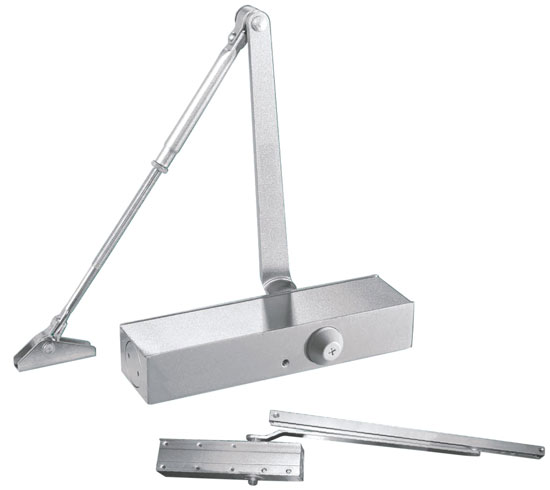
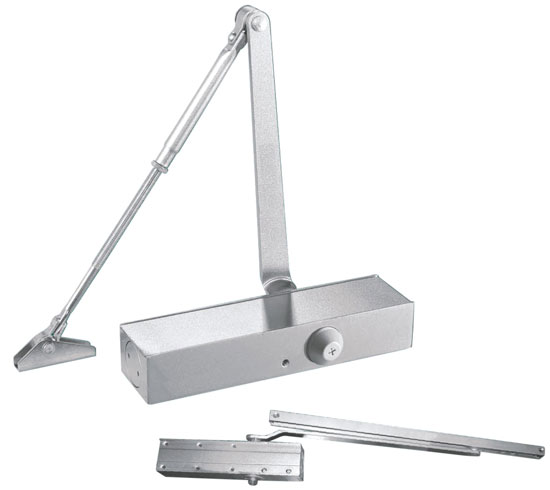
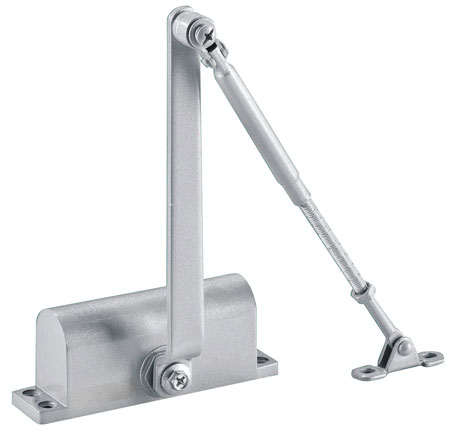
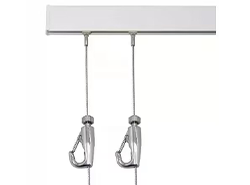
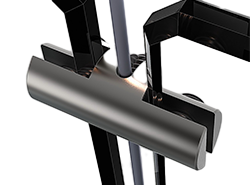
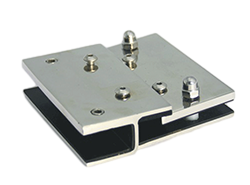
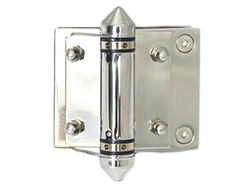
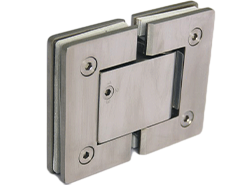
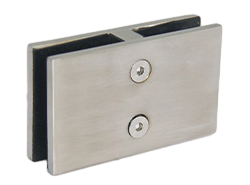
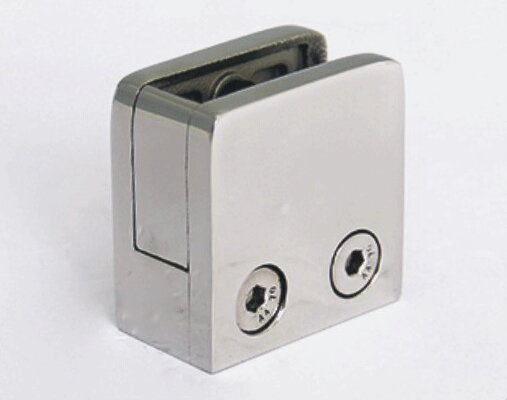
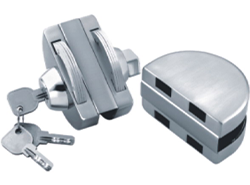
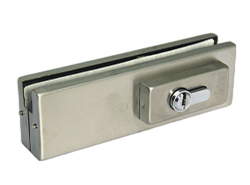
_31221.png)